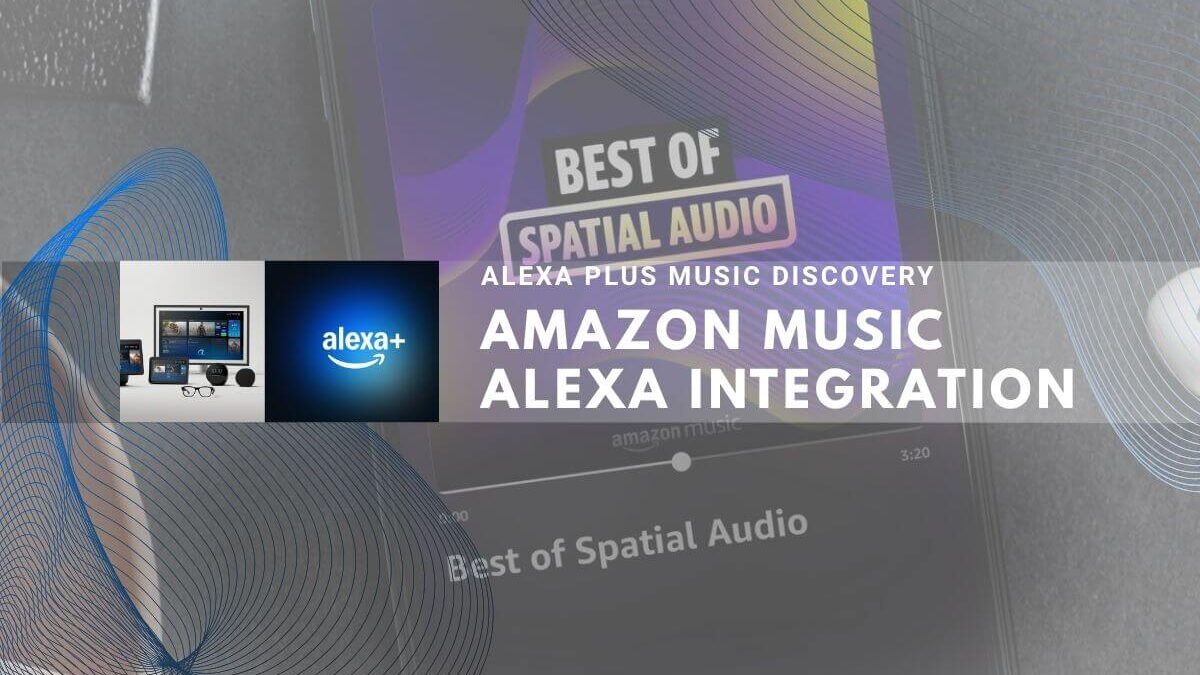Amazon has integrated Alexa Plus, a conversational AI assistant, directly into the Amazon Music app for iOS and Android. Available through Early Access in the United States only, the feature enables users to discover music through natural dialogue instead of traditional search commands. Early Access participants demonstrate three times higher engagement with music and listen to approximately 70 percent more content when seeking recommendations.[1][2][3]
How Alexa Plus Works in Music Discovery
Users activate Alexa Plus by tapping the “a” button in the lower right corner of the Amazon Music app. The assistant engages in multi-turn conversations, allowing users to ask follow-up questions and refine results through natural language.[3][4][1]
Core capabilities include:
- Identifying songs from partial lyrics, melodies, or cultural references[1][3]
- Explaining artist influences, musical styles, and career trajectories[3][1]
- Tracing sample origins and connections between songs[1][3]
- Generating personalized playlists based on mood, era, or theme[3][1]
- Providing music knowledge including chart positions and festival details[1][3]
- Maintaining conversational context across multiple exchanges[3][1]
Users can request specific criteria without knowing exact song or artist names.[1][3]
Important Regional and Access Limitations
Critical Availability Restrictions
Alexa Plus is not available in India or outside the United States. The Early Access program requires US residency and ownership of compatible Echo or Fire TV devices for automatic qualification. Mobile app access alone does not grant Early Access participation.[4][3][1]
Eligible devices for automatic Early Access include Echo Dot Max, Echo Studio, Echo Show 8, and Echo Show 11, releasing November 12, 2025.[3]
Engagement Performance and Pricing Structure
| Metric | Performance | Source |
|---|---|---|
| Music engagement increase | 3x higher than prior Alexa | Official Amazon announcement[1] |
| Listening increase for recommendations | Approximately 70 percent | Official Amazon announcement[1] |
| Early Access availability | All Amazon Music tiers | Business Standard[3] |
| Prime member cost after launch | Free | TechLoy, Business Standard[3][4] |
| Non-Prime user cost | $20 per month | TechLoy, Business Standard[3][4] |
Current Early Access pricing is complimentary for all subscribers across subscription levels.[1][3]
Documented Accuracy Limitations and Technical Details
Engadget’s hands-on testing documented instances where Alexa Plus generates inaccurate information, including false artist duet attributions and incorrect release dates. Users should independently verify critical music facts when accuracy matters.[5]
Amazon first announced Alexa Plus at its February 2025 hardware event. The feature operates on Amazon’s generative AI platform and currently focuses on iOS and Android mobile devices.[6][3][1]
Competitive Position and Future Availability
Alexa Plus competes directly with Spotify’s AI DJ and ChatGPT integration for conversational music discovery. Unlike separate applications, this feature operates natively within Amazon Music, eliminating platform switching friction.[4][6]
Expected Rollout Timeline
- November 2025: Early Access (US-only, device requirement)[3][1]
- Future (unspecified): Broader availability to all Prime and non-Prime users[1][3]
- International expansion: No timeline announced[3][1]
Amazon has not disclosed specific dates for general availability beyond noting expansion will follow Early Access validation.[6][1][3]
